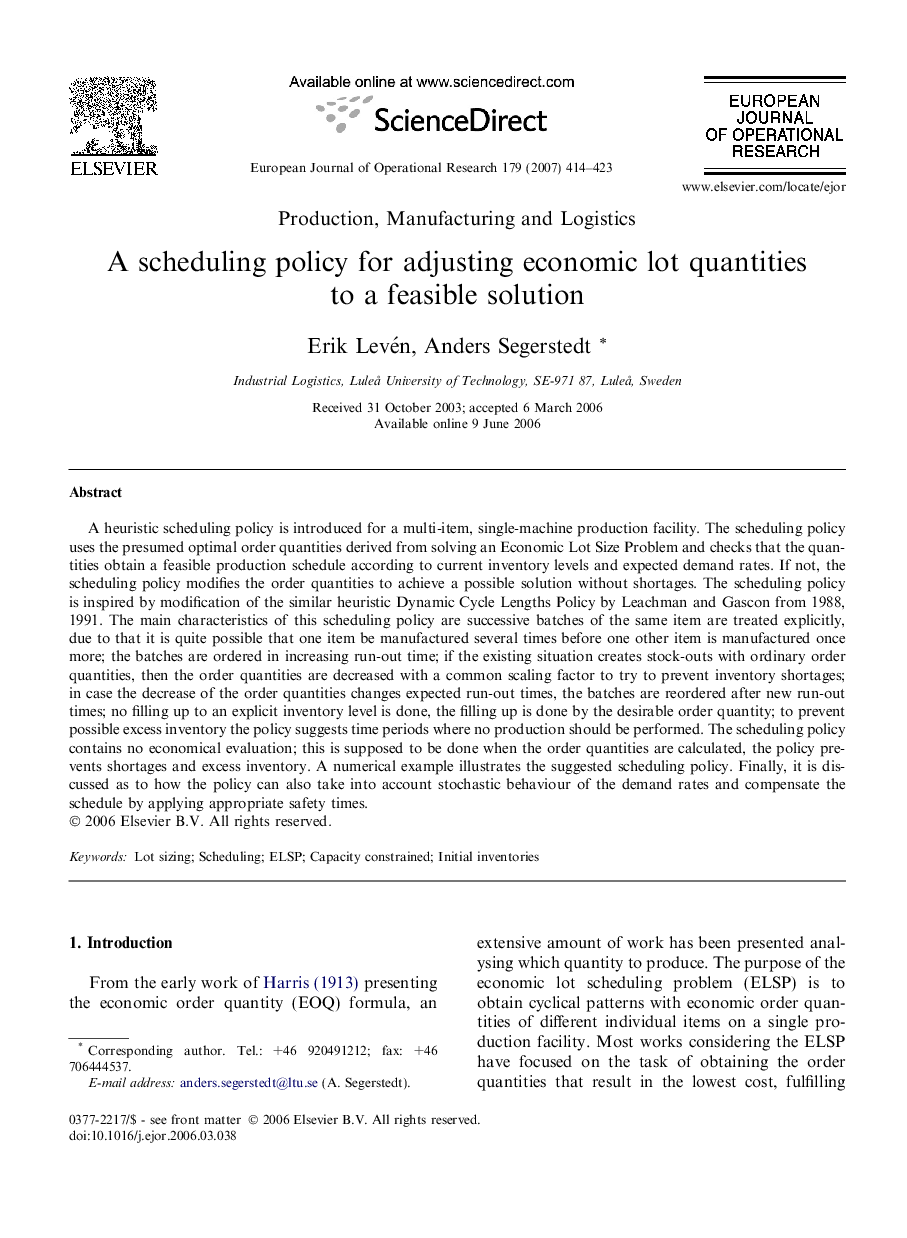| Article ID | Journal | Published Year | Pages | File Type |
|---|---|---|---|---|
| 483199 | European Journal of Operational Research | 2007 | 10 Pages |
A heuristic scheduling policy is introduced for a multi-item, single-machine production facility. The scheduling policy uses the presumed optimal order quantities derived from solving an Economic Lot Size Problem and checks that the quantities obtain a feasible production schedule according to current inventory levels and expected demand rates. If not, the scheduling policy modifies the order quantities to achieve a possible solution without shortages. The scheduling policy is inspired by modification of the similar heuristic Dynamic Cycle Lengths Policy by Leachman and Gascon from 1988, 1991. The main characteristics of this scheduling policy are successive batches of the same item are treated explicitly, due to that it is quite possible that one item be manufactured several times before one other item is manufactured once more; the batches are ordered in increasing run-out time; if the existing situation creates stock-outs with ordinary order quantities, then the order quantities are decreased with a common scaling factor to try to prevent inventory shortages; in case the decrease of the order quantities changes expected run-out times, the batches are reordered after new run-out times; no filling up to an explicit inventory level is done, the filling up is done by the desirable order quantity; to prevent possible excess inventory the policy suggests time periods where no production should be performed. The scheduling policy contains no economical evaluation; this is supposed to be done when the order quantities are calculated, the policy prevents shortages and excess inventory. A numerical example illustrates the suggested scheduling policy. Finally, it is discussed as to how the policy can also take into account stochastic behaviour of the demand rates and compensate the schedule by applying appropriate safety times.
